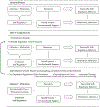The role of psychological science in efforts to improve cardiovascular medication adherence
- PMID: 30394776
- PMCID: PMC7199648
- DOI: 10.1037/amp0000316
The role of psychological science in efforts to improve cardiovascular medication adherence
Abstract
Poor adherence to cardiovascular disease medications carries significant psychological, physical, and economic costs, including failure to achieve therapeutic goals, high rates of hospitalization and health care costs, and incidence of death. Despite much effort to design and evaluate adherence interventions, rates of adherence to cardiovascular-related medications have remained relatively stagnant. We identify two major reasons for this: First, interventions have not addressed the time-varying reasons for nonadherence, and 2nd, interventions have not explicitly targeted the self-regulatory processes involved in adherence behavior. Inclusion of basic and applied psychological science in intervention development may improve the efficacy and effectiveness of behavioral interventions to improve adherence. In this article, we use a taxonomy of time-based phases of adherence-including initiation, implementation, and discontinuation-as context within which to review illustrative studies of barriers to adherence, interventions to improve adherence, and self-regulatory processes involved in adherence. Finally, we suggest a framework to translate basic psychological science regarding self-regulation into multicomponent interventions that can address multiple and time-varying barriers to nonadherence across the three adherence phases. The field of psychology is essential to improving medication adherence and associated health outcomes, and concrete steps need to be taken to implement this knowledge in future interventions. (PsycINFO Database Record (c) 2018 APA, all rights reserved).
Figures

References
-
- Agency for Healthcare Research and Quality. (2001). Translating research into practice (TRIP)-II. Retrieved from https://archive.ahrq.gov/research/findings/factsheets/translating/tripfa...
-
- Balkrishnan R, Rajagopalan R, Camacho FT, Huston SA, Murray FT, & Anderson RT (2003). Predictors of medication adherence and associated health care costs in an older population with type 2 diabetes mellitus: A longitudinal cohort study. Clinical Therapeutics, 25, 2958–2971. 10.1016/S0149-2918(03)80347-8 - DOI - PubMed
-
- Bargh JA, & Barndollar K (1996). Automaticity in action: The unconscious as repository of chronic goals and motives In Gollwitzer PM & Bargh JA (Ed.), The psychology of action: Linking cognition and motivation to behavior (pp. 457–471). New York, NY: Guilford Press.
Publication types
MeSH terms
Grants and funding
LinkOut - more resources
Full Text Sources
